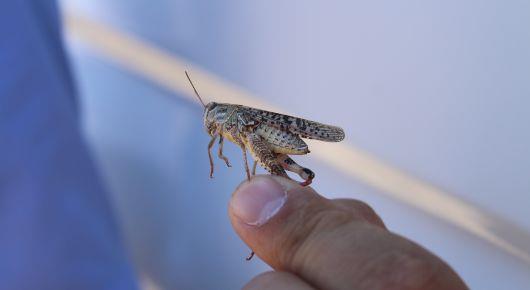FAO stands by Kyrgyzstan in locust emergency

The COVID-19 crisis has laid bare vulnerable areas in countries’ policies and protections, and has given new challenges to be solved during this unpredictable time. However, new problems do not make those disappear which our planet has been facing for a long time before the pandemic started.
The locust plague is one such problems that represent a serious threat for food security and nutrition, even today, even in Kyrgyzstan. Therefore, as a prevention measure to protect food security and nutrition, the Ministry of Agriculture, Food Industry and Melioration will receive technical support from FAO to fight the locust.
It is predicted for 2020 that, without immediate action, Kyrgyzstan is expected to have a massive population of locusts on an area of more than 120 000 hectares.
Conserving pastures and crops is the main objective of the project on improving preparedness and emergency response to locust outbreaks in the Kyrgyz Republic. Planned to be implemented within a year, it will cover more than 50 000 hectares of farmland.
The project will include the purchase of necessary pesticides used in locust treatments and equipment, and materials for conducting surveys and treatments of farmland, as well as the necessary training for employees of the department of chemical and plant protection.
"Today, it is extremely important to carry out preventive measures – conducting route surveys and locust treatments," said Zhanybek Derbishaliev, Director of the Ministry’s chemical and plant protection department. "The consequences of insufficient locust control can be catastrophic, threatening food security, and can create a crisis not only in Kyrgyzstan, but also in the entire Central Asian region.”
As a prevention measure to protect food security and nutrition, the Ministry requested from FAO technical assistance in the fight against the locusts.
“Today's numerous challenges have shown us that we need to join forces to provide full support and protection of people and sustainable development of the country,” said Dinara Rakhmanova, Assistant FAO Representative in Kyrgyzstan. “If we do not take timely steps and do not approach the problems related to locusts in a comprehensive manner, we risk causing a deterioration in food security and the quality of life of our people.“
25 May 2020, Bishkek, Kyrgyzstan
